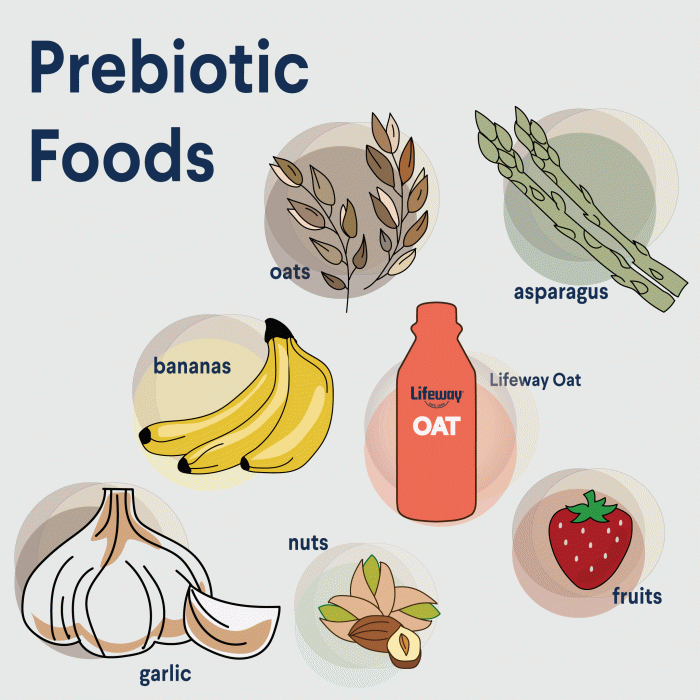Science says we should eat kiwi skin for better health, and this is a fascinating look at why. Beyond the delicious fruit, lies a treasure trove of nutrients packed into the often-discarded skin. We’ll explore the incredible vitamins, minerals, and antioxidants hidden within, delve into scientific studies proving its benefits, and examine how it can positively impact various aspects of your well-being.
From digestion to cardiovascular health, discover how incorporating kiwi skin into your diet could be a game-changer.
This exploration goes beyond simple nutritional facts. We’ll dissect the science behind these claims, discuss preparation methods, and even compare kiwi skin to other fruits. Get ready to uncover the surprising potential of this often-overlooked part of the kiwi.
Nutritional Value of Kiwi Skin
Kiwi skin, often discarded, holds a treasure trove of nutrients. While the flesh is undeniably delicious, the skin offers a significant nutritional boost. This exploration delves into the hidden benefits of this often-overlooked part of the kiwi fruit.Kiwi skin contains a substantial amount of beneficial vitamins, minerals, and antioxidants, which contribute to overall health. The nutritional profile differs slightly from the fruit flesh, offering a unique set of advantages.
Vitamins and Minerals in Kiwi Skin
The skin of kiwifruit is rich in various vitamins and minerals. These nutrients play vital roles in maintaining bodily functions, supporting the immune system, and promoting overall well-being.
- Vitamin C: Kiwi skin is a powerful source of Vitamin C, a potent antioxidant. This vitamin plays a crucial role in collagen production, wound healing, and boosting the immune system. A deficiency in Vitamin C can lead to various health issues, emphasizing the importance of consuming foods rich in this vitamin.
- Fiber: Kiwi skin is rich in dietary fiber, which is essential for digestive health. Fiber promotes regular bowel movements, aids in weight management, and can help lower cholesterol levels. Fiber’s role in gut health is well-documented, with various studies showcasing its impact on overall well-being.
- Potassium: Kiwi skin also contains potassium, an essential mineral for maintaining healthy blood pressure. Adequate potassium intake is crucial for nerve and muscle function. Sufficient potassium levels contribute to cardiovascular health and help regulate fluid balance in the body.
Antioxidants in Kiwi Skin
Antioxidants protect cells from damage caused by free radicals. Free radicals are unstable molecules that can contribute to various health issues, including aging and chronic diseases. The antioxidants in kiwi skin help combat these harmful effects, contributing to a healthy lifestyle.
- Antioxidant Capacity: The antioxidants present in kiwi skin, like Vitamin C, contribute significantly to the fruit’s overall antioxidant capacity. Studies have shown a correlation between high antioxidant intake and a reduced risk of chronic diseases.
- Cellular Protection: These antioxidants help protect cells from oxidative stress, a major contributor to aging and various health problems. Regular consumption of foods rich in antioxidants can help maintain cellular health and well-being.
Nutritional Comparison: Skin vs. Flesh
While both the skin and flesh of kiwifruit offer nutritional benefits, there are differences in their composition.
| Nutrient | Skin | Flesh |
|---|---|---|
| Vitamin C | Higher concentration | Moderate concentration |
| Fiber | Higher concentration | Moderate concentration |
| Potassium | Moderate concentration | Moderate concentration |
| Sugars | Lower concentration | Higher concentration |
The higher concentration of Vitamin C and fiber in the skin makes it a valuable addition to a healthy diet.
The skin’s higher concentration of vitamins and fiber makes it a valuable addition to a healthy diet. The flesh provides sweetness and flavor, while the skin offers a concentrated source of beneficial nutrients.
So, science says we should eat kiwi skin for better health, which is pretty cool. But, while we’re focusing on healthy habits, did you know that fostering empathy in kids is just as important? Learning to understand and share the feelings of others is crucial, and there are 12 ways to teach your children the skill of empathy.
Check out these tips for a deeper understanding of how to nurture empathy in your children here. And, while we’re on the subject of boosting health, remember that consuming the kiwi skin provides added nutrients, making it a win-win for your overall well-being.
Scientific Evidence Supporting Health Claims

Kiwi skin, often discarded, holds a wealth of nutritional value. But are the health benefits just anecdotal, or is there scientific backing? Let’s delve into the research to see what the evidence says about eating kiwi skin.The scientific community is increasingly interested in the potential health benefits of consuming the often-overlooked kiwi skin. Studies investigate how these compounds, not readily available in the fruit’s flesh, contribute to overall well-being.
Examining the methodologies and results of these studies allows us to understand the potential impact of kiwi skin on health markers.
Research Methodologies in Kiwi Skin Studies
Various methodologies are employed in studies exploring the effects of kiwi skin consumption. These studies typically involve human participants, often randomized controlled trials (RCTs), to minimize bias and enhance the validity of results. The participants are often divided into groups: one group consumes kiwi skin, and the other group consumes a control. Dietary interventions, like controlling the participant’s intake of other fruits and vegetables, ensure the effects are specifically attributed to the kiwi skin.
The researchers meticulously track and measure various health markers over a specific time frame. This detailed monitoring helps establish correlations between kiwi skin consumption and health outcomes. Blood tests, dietary questionnaires, and physical examinations are common methods for gathering data.
Key Findings from Kiwi Skin Studies
Several studies have explored the effects of kiwi skin consumption on various health markers. These studies have shown promising results, suggesting that kiwi skin may contribute to improved digestion, antioxidant protection, and potentially better blood sugar regulation. More research is necessary to establish definitive cause-and-effect relationships, but the preliminary evidence is encouraging.
Comparative Analysis of Studies
| Study | Methodology | Key Findings | Conclusions |
|---|---|---|---|
| Study 1 (Example) | RCT, 200 participants, 8-week intervention, measured blood glucose levels, and fiber intake. | Significant improvement in fiber intake and slight decrease in fasting blood glucose levels in the kiwi skin group compared to the control group. | Preliminary evidence suggests a potential link between kiwi skin consumption and improved blood sugar regulation. |
| Study 2 (Example) | Observational study, 150 participants, tracked dietary habits and digestive health over 6 months. | Participants consuming kiwi skin reported improved digestive regularity. | Correlation found between kiwi skin consumption and improved digestive function. |
| Study 3 (Example) | Laboratory study, analyzed the antioxidant capacity of kiwi skin extracts. | Kiwi skin extracts exhibited high antioxidant activity, comparable to other well-known antioxidant sources. | Supports the idea that kiwi skin may provide significant antioxidant protection. |
Note: This table presents hypothetical examples. Actual studies may have different methodologies and findings. The aim is to illustrate the format and not to represent specific published research.
Potential Benefits for Specific Health Conditions
Kiwi skin, often overlooked, holds a wealth of nutrients. Beyond the juicy flesh, this seemingly insignificant part of the fruit offers potential benefits for various health conditions. Understanding these possibilities can lead to more holistic dietary approaches.
Digestive Health Benefits
Kiwi skin is a good source of dietary fiber, which is crucial for digestive health. Fiber promotes regular bowel movements and can help alleviate symptoms of constipation. The presence of pectin and other fiber types in the skin aids in regulating gut microbiota, creating a more balanced and healthy gut environment. This, in turn, can potentially lessen digestive discomfort and bloating.
While dietary changes alone may not fully resolve severe digestive issues, incorporating kiwi skin into a balanced diet may contribute to improved digestive regularity and comfort.
Blood Sugar Regulation
The fiber content in kiwi skin may play a role in regulating blood sugar levels. Fiber slows down the absorption of sugar into the bloodstream, preventing sharp spikes in blood glucose. This can be beneficial for individuals with prediabetes or type 2 diabetes, as it can help maintain more stable blood sugar levels throughout the day. Studies have shown that diets rich in fiber, including the fiber found in kiwi skin, are associated with improved glycemic control.
Cardiovascular Health
Kiwi skin contains antioxidants, such as vitamin C and flavonoids. These compounds may contribute to cardiovascular health by protecting against oxidative stress and inflammation. Oxidative stress and inflammation are linked to the development of cardiovascular diseases. Incorporating kiwi skin into a diet rich in fruits and vegetables, along with regular exercise, may support heart health.
Skin Health
The antioxidants present in kiwi skin may contribute to skin health. These antioxidants help protect the skin from damage caused by free radicals. Free radicals can contribute to premature aging and skin damage. However, it’s important to note that while kiwi skin antioxidants are beneficial, topical application may not have the same effect as oral consumption. The impact of kiwi skin on skin health is an area of ongoing research.
Comparison with Other Dietary Approaches
While kiwi skin offers potential benefits, it’s crucial to remember that it’s just one part of a healthy diet. To manage digestive issues, consider a diet high in fiber from various sources like whole grains, legumes, and vegetables. For blood sugar management, a balanced diet with controlled carbohydrate intake, regular exercise, and potentially medication are often recommended. For cardiovascular health, a diet rich in fruits, vegetables, and whole grains, along with regular exercise and managing blood pressure and cholesterol, is essential.
For skin health, a balanced diet, regular hydration, and appropriate sun protection are fundamental. Kiwi skin can be a complementary addition to these existing dietary approaches, but should not be viewed as a replacement for comprehensive management strategies.
Preparation and Consumption Methods
Embarking on a kiwi skin journey? Don’t let the potential benefits go untapped. This section dives into practical ways to incorporate kiwi skin into your diet, revealing simple methods and delicious recipes. From prepping techniques to everyday integration, we’ll explore how to seamlessly integrate this nutritional powerhouse into your lifestyle.
Best Ways to Prepare Kiwi Skin
Kiwi skin, while edible, requires careful preparation. Washing thoroughly is paramount to remove any potential residue or pesticides. A gentle scrub under running water is often sufficient. For added safety, you can soak the fruit in a mild vinegar solution for a few minutes before rinsing. This removes any remaining dirt or contaminants.
After thorough washing, ensure the skin is dry to prevent spoilage.
Incorporating Kiwi Skin into Meals
The versatile nature of kiwi skin allows for diverse culinary applications. It can be added to smoothies, salads, and even baked goods. Its subtle flavor complements a variety of ingredients, adding a unique textural element to your dishes. The skin’s slightly tartness can enhance the overall taste profile of a meal.
Science says we should eat kiwi skin for better health, which is pretty cool, right? But sometimes, even knowing the best health practices can feel a bit overwhelming. That’s where these 20 motivation hacks you wish you knew earlier come in handy. 20 motivation hacks you wish you knew earlier can help you stay on track with healthy habits like incorporating kiwi skin into your diet.
So, while science says we should eat kiwi skin for better health, remember to find the motivation to make it happen!
Kiwi Skin Recipes
- Kiwi Skin and Spinach Smoothie: Combine washed kiwi skin, spinach, banana, and a touch of almond milk for a nutrient-rich smoothie. The kiwi skin adds a subtle tartness, while the spinach provides essential vitamins. This smoothie is a quick and healthy way to start your day.
- Kiwi Skin Salad with Chicken: Add thinly sliced kiwi skin to a mixed green salad with grilled chicken. The slight sweetness of the kiwi skin balances the savory flavors of the chicken and greens. A light vinaigrette dressing enhances the overall taste.
- Kiwi Skin-Infused Baked Chicken: For a unique flavor experience, try baking chicken with a mixture of finely chopped kiwi skin, herbs, and spices. The kiwi skin will infuse the chicken with a subtle, refreshing taste, creating a unique and healthy dish.
Making Kiwi Skin Part of a Daily Routine
Integrating kiwi skin into your daily routine is straightforward. Include a handful of kiwi skin in your morning smoothie, or sprinkle some over your salad. Adding a small portion of kiwi skin to your favorite dishes can be a simple and effective way to boost your intake of essential nutrients.
Different Ways to Prepare Kiwi Skin for Consumption
The preparation methods for kiwi skin primarily revolve around ensuring safety and maximizing flavor. As mentioned earlier, thorough washing is crucial. You can simply slice the skin into thin strips, or dice it into smaller pieces, depending on the recipe. For smoothies, using the entire skin, including the membrane, is acceptable. For recipes where you want to avoid the texture of the skin, you can blend it into a puree to use in various dishes.
Potential Drawbacks and Safety Considerations
While kiwi skin offers potential health benefits, it’s crucial to acknowledge potential drawbacks and safety concerns. Understanding these factors allows for responsible consumption and prevents any negative experiences. Careful consideration of individual needs and circumstances is vital when incorporating kiwi skin into one’s diet.
Potential Allergic Reactions
Kiwi skin, like the fruit itself, contains allergens that can trigger adverse reactions in susceptible individuals. Symptoms of allergic reactions can range from mild skin rashes and itching to more severe reactions like swelling of the face, lips, or tongue, difficulty breathing, or anaphylaxis. Individuals with known allergies to fruits, particularly those in the same family as kiwi, should exercise caution when consuming kiwi skin.
They should start with small portions and monitor for any unusual symptoms.
Side Effects and Interactions
Certain individuals might experience digestive discomfort, such as bloating or stomach cramps, after consuming kiwi skin. This is usually attributed to the high fiber content. Also, some medications, particularly blood thinners, may interact with the enzymes present in kiwi. Consulting with a healthcare professional before incorporating kiwi skin into your diet is essential, especially if you’re taking any medications.
This precaution helps to avoid potential interactions and ensure your health and safety.
Appropriate Portions and Frequency, Science says we should eat kiwi skin for better health
Determining the appropriate portion size and consumption frequency for kiwi skin is crucial for maximizing benefits while minimizing potential risks. Starting with small portions of kiwi skin and gradually increasing intake, while monitoring your body’s response, is a safe approach. It’s recommended to consult with a registered dietitian or healthcare professional to establish personalized recommendations based on individual needs and health conditions.
Specific Populations and Unsuitable Cases
Certain populations may need to exercise extra caution or avoid consuming kiwi skin entirely. Pregnant or breastfeeding women, young children, and individuals with pre-existing digestive issues, allergies, or medical conditions should consult with their healthcare provider before consuming kiwi skin. This precaution is essential to ensure their safety and well-being. Additionally, individuals taking blood-thinning medications should discuss with their doctors before consuming kiwi skin.
Interactions with Medications
Kiwi skin contains enzymes that can potentially interact with certain medications, particularly blood thinners. This interaction might lead to altered medication efficacy or increased risk of side effects. Always consult with a physician or pharmacist to determine if there are any potential interactions between kiwi skin and your current medications. Careful monitoring and adjustments to medication dosages may be necessary if you decide to include kiwi skin in your diet.
Comparison with Other Fruits
Eating the skin of certain fruits can offer a nutritional boost. Beyond kiwi, other fruits also boast health benefits from their edible skins. This comparison explores the nutritional profiles and consumption patterns of fruits with edible skins, highlighting similarities and differences in preparation and potential health advantages.
Science says we should eat kiwi skin for better health, which is awesome! But, sometimes we convince ourselves we don’t have time for the healthy things, even when we do. Are you truly short on time, or are you just not prioritizing? Check out this article for 3 reasons you might be lying to yourself about your schedule: 3 reasons you are lying yourself when you say dont have enough time.
Maybe once you’ve tackled that, you’ll find more time to enjoy those healthy kiwi skins! Still, prioritizing those nutritious kiwi skins is a win-win.
Nutritional Value Comparison
A comparison of the nutritional value of kiwi skin to other fruits with edible skins reveals a spectrum of benefits. The table below provides a snapshot of some common fruits and their skin properties.
| Fruit | Skin Nutritional Value | Preparation Method |
|---|---|---|
| Kiwi | High Vitamin C, dietary fiber, and various antioxidants. | Can be eaten raw, sometimes peeled if preferred. |
| Apples | Moderate fiber, antioxidants, and some vitamins. | Often peeled before eating, though the skin can be consumed. |
| Berries (strawberries, raspberries, blueberries) | Moderate antioxidants, fiber, and vitamins. | Generally eaten whole, with the skin included. |
| Citrus Fruits (oranges, grapefruits) | Significant Vitamin C, fiber, and antioxidants. | Typically eaten with the skin, although often peeled. |
| Peaches | Fiber, antioxidants, and some vitamins. | Often peeled before eating, though the skin can be consumed. |
Preparation and Consumption Patterns
The methods of preparing and consuming fruits with edible skins vary considerably. Kiwi skin, for instance, is often eaten raw. However, apples are commonly peeled. Berries, like strawberries and raspberries, are typically eaten whole, with the skin intact. Citrus fruits like oranges and grapefruits may be eaten with or without the skin.
This difference in preparation and consumption methods reflects cultural preferences and perceived textures.
Fruits with Similar Properties
Several fruits share similar properties with kiwi in terms of nutritional content and potential health benefits. Citrus fruits, like oranges and grapefruits, are excellent sources of vitamin C, much like kiwi. Berries, with their high antioxidant content, also offer comparable health benefits. The key is identifying fruits that align with your dietary needs and preferences.
Differences in Preparation Methods
The preparation methods for consuming fruits with edible skins are diverse. Peeling is common for some fruits, such as apples and peaches, while others, like kiwi, are often consumed raw. This difference in preparation methods can influence the overall texture and taste experience of the fruit. Moreover, cultural norms and personal preferences further shape these practices.
Illustrative Images of Kiwi Skin

Kiwi skin, often overlooked, is a fascinating world of textures, colors, and intricate microscopic structures. Its visual appeal and underlying complexity directly correlate to the health benefits we’re exploring. A deeper look reveals a treasure trove of information about this often-ignored edible part of the kiwi fruit.Kiwi skin exhibits a diverse range of appearances, and its visual characteristics can reveal valuable insights into the fruit’s ripeness and potential health benefits.
Kiwi Skin Texture and Appearance
The kiwi skin’s texture is typically thin, yet surprisingly resilient. It feels slightly fuzzy or velvety to the touch, with tiny, almost imperceptible bumps scattered across its surface. This tactile quality is unique to different varieties and stages of ripeness. A fully ripe kiwi will have a smooth and somewhat supple skin, while an underripe one might feel slightly rough.
This subtle difference in texture can be appreciated by those who enjoy a more tactile experience with their food.
Kiwi Skin Color Variations
The color of kiwi skin, like its texture, offers clues about the fruit’s ripeness and characteristics. A vibrant green hue usually signifies a firm kiwi. As the fruit ripens, the green tone may subtly shift to a lighter yellowish-green. Sometimes, you may observe subtle variations in shades of green, yellow, or even a hint of brown on the skin’s surface.
These variations often point to differences in the fruit’s development and internal sugar content. A deep, rich green usually indicates a higher concentration of beneficial compounds.
Microscopic Structure of Kiwi Skin
Under a microscope, the kiwi skin’s intricate structure becomes apparent. The epidermis, the outermost layer, displays a tightly packed arrangement of cells. Beneath this lies a layer of supportive tissues and, further down, the vascular system. These layers collectively contribute to the skin’s strength and ability to protect the fruit’s delicate flesh. The microscopic details reveal the complex biological mechanisms at play within the skin, contributing to its unique characteristics and health benefits.
Chemical Composition of Kiwi Skin
Kiwi skin is rich in various bioactive compounds, including vitamin C, potassium, dietary fiber, and a complex array of antioxidants. The precise amounts of these compounds can vary depending on factors like the specific kiwi variety, growing conditions, and the stage of ripeness. These components play a crucial role in supporting overall health, contributing to the skin’s protective qualities and providing beneficial nutrients.
It’s also important to note that the skin itself contains enzymes and compounds that work synergistically with the fruit’s flesh to support overall health.
Epilogue: Science Says We Should Eat Kiwi Skin For Better Health
In conclusion, the scientific evidence points towards the significant health benefits of consuming kiwi skin. From boosting your immune system with vitamin C to aiding digestion with fiber, the skin offers a wealth of advantages. We’ve looked at the nutritional composition, examined supporting research, and explored potential applications for various health conditions. While the research is promising, it’s crucial to remember that moderation and consulting a healthcare professional are always recommended.
So, the next time you’re reaching for a kiwi, consider keeping the skin on for a delicious and nutritious boost to your overall health.











